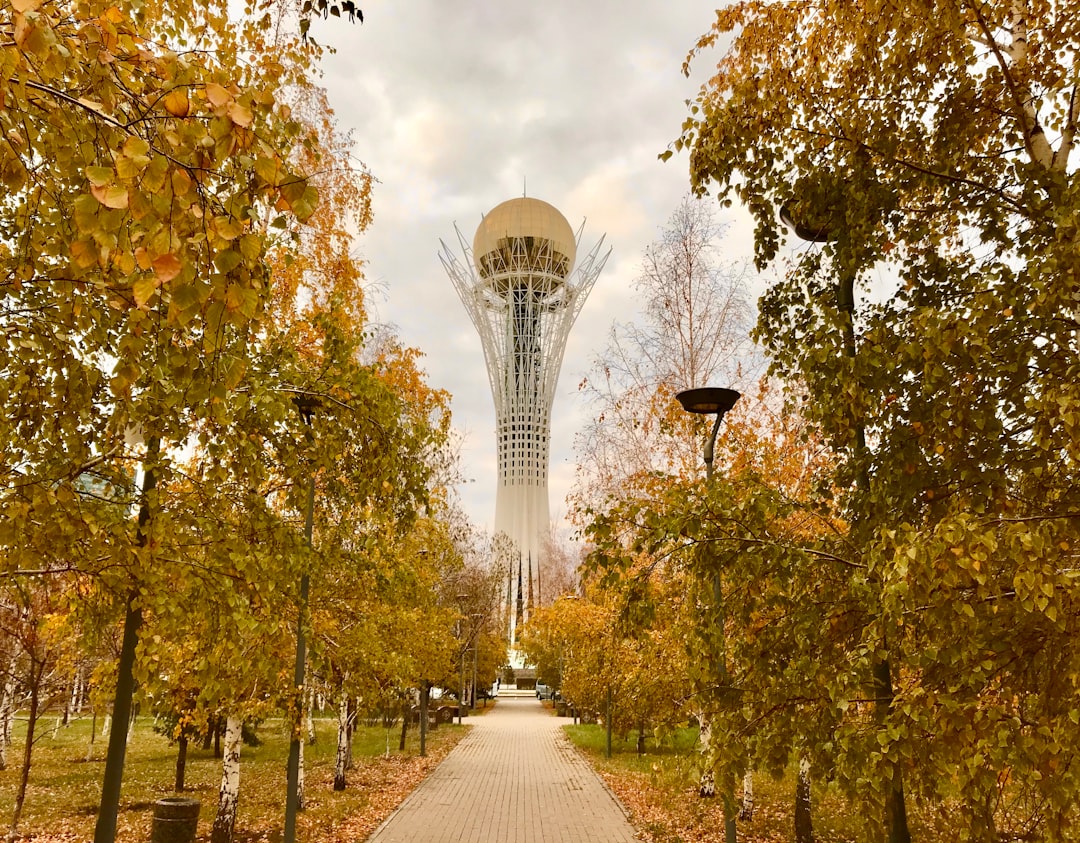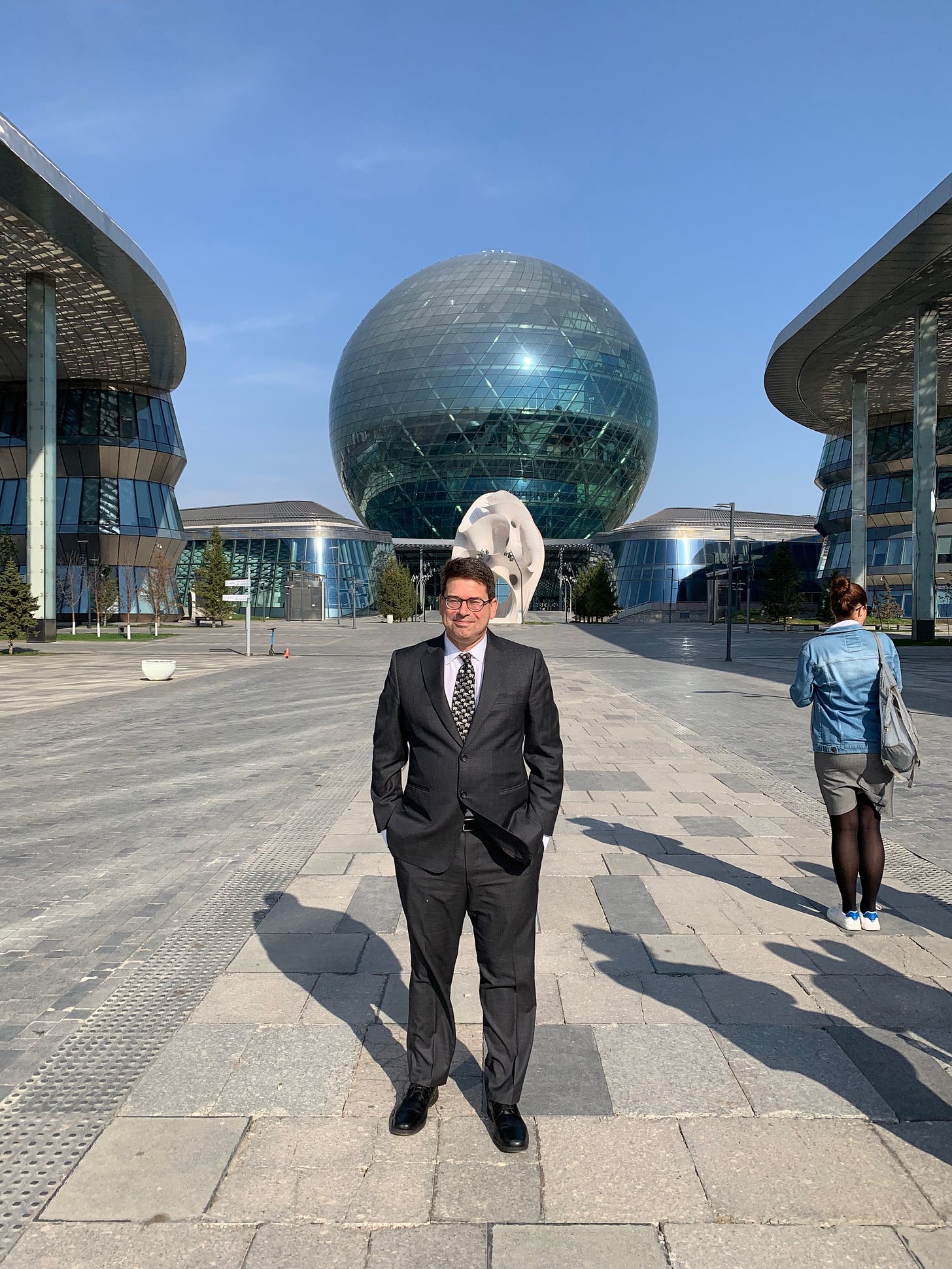Dear all,
Greetings from Astana! The hard-working staff here at Drezner’s World arrived here sometime in the last 72 hours. The time since then has been put to good use. For example, the day before yesterday I got to visit Kazakhstan’s Death Star prototype the Astana International Finance Center:
I will have something more coherent to say once I have processed everything, but for now, here are some quick takes from the (relatively) new capital of Kazakhstan:
Astana is weird in the way that all planned cities are weird. The architecture runs the gamut from an homage to the Stalin wedding wake buildings in Moscow to traditional Islamic mosques to the aforementioned Death Star. The grandiloquent architecture adds to the unreality of the place; while I was there, I heard a lot about how Astana had “Central Asia’s largest ___,” with the blank being filled by everything from “mosque” to “skyscraper” to “university.” Part of it was due to the underpopulated feeling of the place; although a million plus citizens live there, the central spaces were radically uncrowded. Several of the structures that the Kazakhs bragged about, from the arbitration center to the university, lacked the requisite people to give a sense of bustle.
It should be noted that even Astana’s residents acknowledge its weirdness. Several people described living in Astana as akin to being in a “bubble” compared to the rest of Kazakhstan. Nearly everyone told us to also visit the former capital and commercial hub Almaty, or even Aktau on the Caspian Sea. This, by the way, is why anyone who talks about the “mood” of the country after having only visited the capital is providing a superficial take at best.
There has been a lot of chatter in Moscow (and D.C.) since the invasion of Ukraine about how Kazakhstan might be the next target of opportunity for Russian revanchism. And it has a superficial logic; 16 percent of Kazakhstan’s population is ethnic Russian and they are disproportionately concentrated in northern Kazakhstan. But the consensus view among everyone we spoke to is that after seeing the war in Ukraine the last thing that the ethnic Russian community here wants to see is more Russians crossing the border. They do not want Russia to invade, but they are also proud enough of being Russian to judge harshly those Russians who fled from mobilization.
Kazakhstan finds itself in quite a pickle. On the one hand, every official and foreign policy observer told us in the first breath that Kazakhstan’s foreign policy was grounded in its “national interest,” as if everyone was reading the same Idiot’s Guide to Realpolitik handout. In the very next breath, however, these same people would also stress the important of international law and adherence to the United Nations Charter. That is because for a relatively weak state like Kazakhstan, the realist play is to stress the importance of international law. Operating in a codified legal order might not always work out, but for weaker states the odds are better inside that order than in a purely Hobbesian environment.
One last pro tip: should you visit Kazakhstan, you might be asked to try qurut or kurt as a snack. I would strongly recommend against doing that, unless you have a very large beer nearby to immediately wash the taste from your mouth.
More later!



